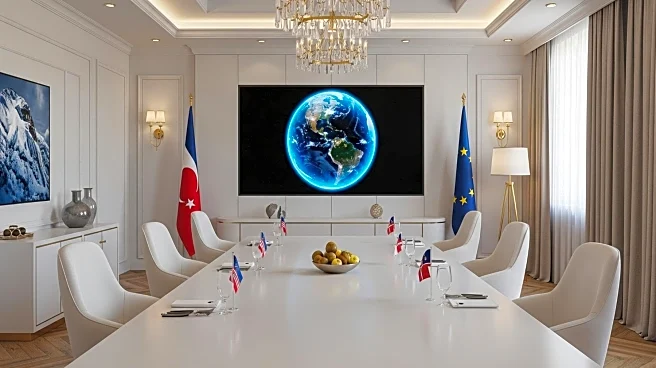What is the story about?
What's Happening?
The United Nations General Assembly has adopted a resolution permitting Palestinian President Mahmoud Abbas to deliver a pre-recorded video address at the upcoming high-level debate. This decision follows the United States' refusal to issue visas to the Palestinian delegation. The resolution was passed with 145 votes in favor, five against, and six abstentions. The measure sets procedures for delivering pre-recorded statements, allowing Abbas to submit his address via video in the General Assembly Hall, introduced by a representative based in New York. This arrangement applies only to the current 80th session of the Assembly.
Why It's Important?
The resolution underscores the UN's commitment to facilitating communication despite diplomatic challenges. It highlights the ongoing tensions between the United States and Palestine, particularly regarding visa issues. The decision allows Palestine to participate in international discourse, maintaining its presence in global discussions. This move may influence diplomatic relations and negotiations concerning the two-State solution and other high-level meetings. The resolution also reflects the UN's adaptability in ensuring participation from all member states, even when faced with political obstacles.
What's Next?
The resolution's adoption may lead to further diplomatic discussions between the United States and Palestine. It could prompt other nations to reconsider their stance on visa policies and diplomatic relations with Palestine. The high-level debate will proceed with Abbas's video address, potentially impacting future UN sessions and the handling of similar situations. The decision may also influence the dynamics of international negotiations concerning the two-State solution.















